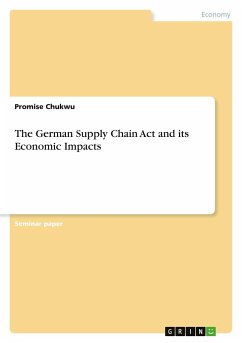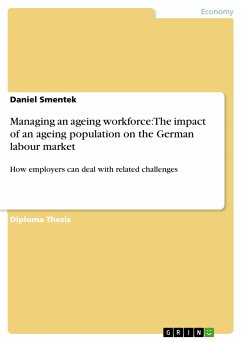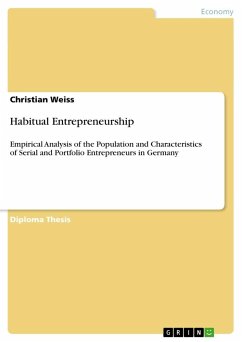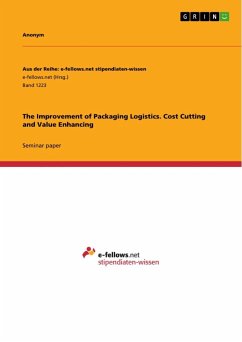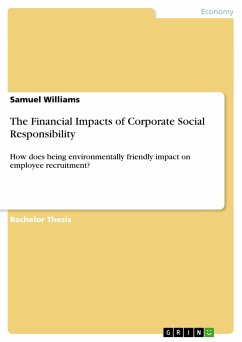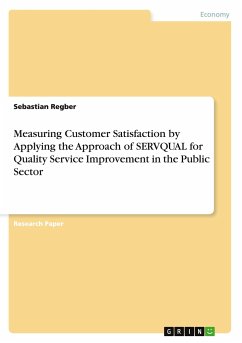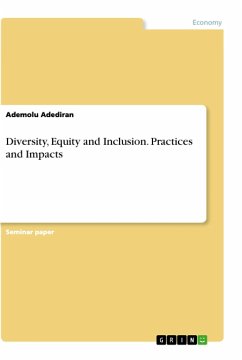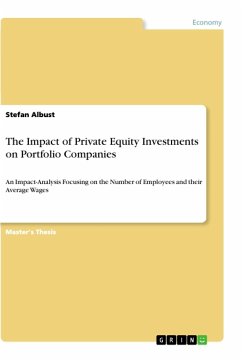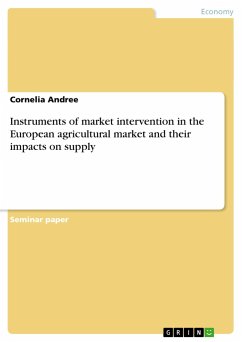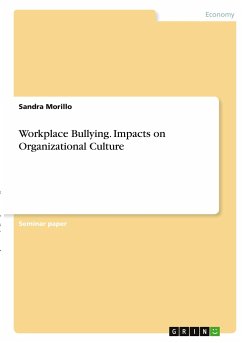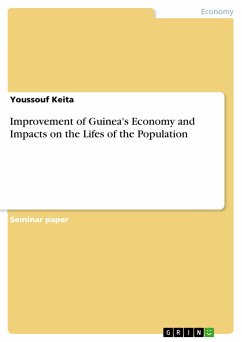
Improvement of Guinea's Economy and Impacts on the Lifes of the Population
Versandkostenfrei!
Versandfertig in 1-2 Wochen
17,95 €
inkl. MwSt.

PAYBACK Punkte
0 °P sammeln!
Seminar paper from the year 2015 in the subject Business economics - General, grade: B, ( Atlantic International University ) (School of Business and Economics), course: Economics, language: English, abstract: The Republic of Guinea is a poor country in the West Africa region. It is endowed with considerable, unexploited resources. It has the world's largest reserves of bauxite (2/3 of global reserves) as well as large deposits of iron ore, gold and diamonds. It also has the potential to develop other metals, oil and gas. However, persistent structural and institutional weaknesses have prevent...
Seminar paper from the year 2015 in the subject Business economics - General, grade: B, ( Atlantic International University ) (School of Business and Economics), course: Economics, language: English, abstract: The Republic of Guinea is a poor country in the West Africa region. It is endowed with considerable, unexploited resources. It has the world's largest reserves of bauxite (2/3 of global reserves) as well as large deposits of iron ore, gold and diamonds. It also has the potential to develop other metals, oil and gas. However, persistent structural and institutional weaknesses have prevented Guinea from developing a strategic vision and implementing the types of policies needed to reap the full benefit of its mineral wealth. Added to this, rampant corruption, dilapidated electricity and other degraded infrastructure, and political instability have drained and eroded investor confidence. Over the second half of the last decade (2010-2015), Guinea's economy has undergone major transformations with ups and downs. In 2013, economic growth was estimated at 2.0%, down from 3.9% in 2012 due to political dispute over the holding of parliamentary elections, a drop of investment in the mining sector and a recent ebola outbreak in the Forrest Guinea region . Growth, driven by agriculture, improved electricity supply and construction, is expected to increase to 4.3% in 2015. Due to major efforts deployed by the public authority of Guinea in overcoming a number of major obstacles underlined above, reforms which started earlier in 2010 still continue in 2015 so as to transform positively the economy of Guinea in reducing poverty, promoting economic development and building a strong, stable political environment suitable to promote private investment and improve the business climate.



